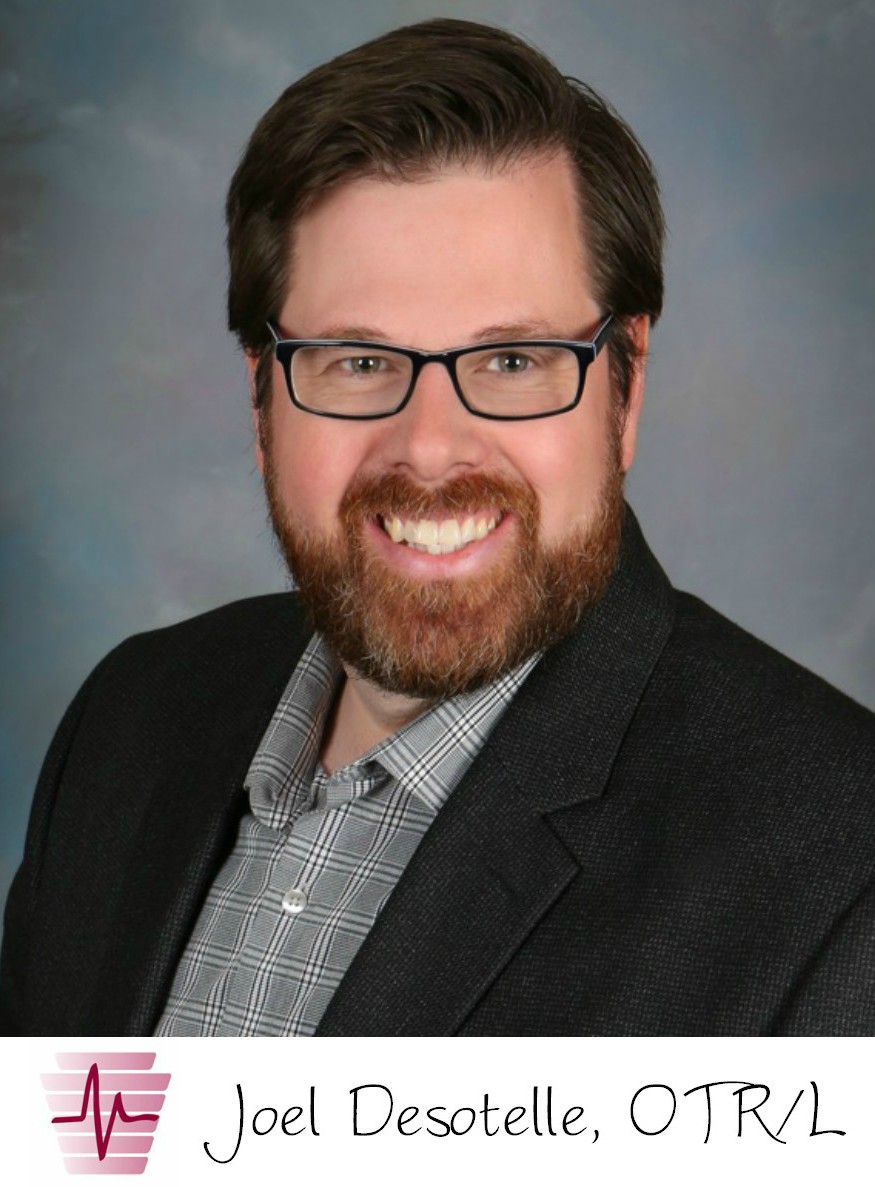 Joel Desotelle, licensed pediatric occupational therapist and program director of Keystone Pediatric Therapies in Chambersburg, wants the public understand that everyone has value in our community, including those who live with a disability.
Joel Desotelle, licensed pediatric occupational therapist and program director of Keystone Pediatric Therapies in Chambersburg, wants the public understand that everyone has value in our community, including those who live with a disability.
Living Up To Standards
In our society, we tend to put individuals with tremendous talent and ability up on a pedestal. At the same time, we often compare ourselves, our children, and others to some unspoken standard. For individuals who live with a disability, such as cognitive or physical challenges, our attention is easily drawn to what these individuals cannot do or even some of the side effects like behaviors commonly seen in a child with autism. Whether gifted or challenged, we are all different and have a purpose in our community.
Ability vs. Disability
Living with a disability can be very challenging. The difficulties a disability presents each day often demand our attention and resources, and so it is easy to focus on an individual’s disability because they stand out. But each individual also has many abilities as well as untapped potential. I have witnessed children with profound cognitive deficits draw amazing pictures, sing like an angel, remember details that would challenge any of us, love their family unconditionally, and so much more. Yes there are challenges, but if our focus is on what these individuals cannot do, it is easy to miss out on what they can do. Furthermore, by seeing people as abled vs. disabled, we rightfully offer each person the dignity they deserve.
Alienation
I work with many families who struggle to go out into the community. They are fearful of what others may think or how to cope with an environment that is overly stimulating and/or not designed for individuals with disabilities. This can leave families staying at home and isolated. These aren’t just fears; I hear stories every day of people staring, criticizing, pointing, and even asking people to leave. Whether a business, an organization or just someone out in the community at a restaurant or shopping, everyone needs to do their part to embrace these challenges and accept those individuals whose lives are enriched by being able to participate in the community without judgment or criticism.
Seek Understanding
Many disabilities are hard to understand. For example, autism is complex and confusing, even for those of us who try to help these individuals. So it is easy to understand why one might misinterpret a child having a meltdown in a store, not realizing that these kids are easily overwhelmed, fixate on objects, misinterpret their surroundings, and process information differently. Our community benefits greatly by educating ourselves and better understanding the disabilities others may live with. Offering help and/or encouragement instead of judgement paves the way for these individuals to feel more accepted, opening up opportunities for each of them to learn and grow, simply by sending the message that “we want you here.”
Invitation To Our Community
Being proactive in developing a community that embraces individuals living with a disability will enrich not only our community, but our own lives as well. Businesses and organizations can be proactive by making doors and hallways wheelchair accessible, but also having a plan or space for our sensory-sensitive kids (sensory-sensitive tables in restaurants, quiet rooms to enable an individual space to decompress, etc). Businesses should also consider creating employment opportunities, while organizations can promote disability-friendly programs. And individuals, whether a relative or someone you see in the community, be patient, understanding, and accepting and together we can create a community where everyone feels welcome.
This article contains general information only and should not be used as a substitute for professional diagnosis, treatment or care by a qualified health care provider.




